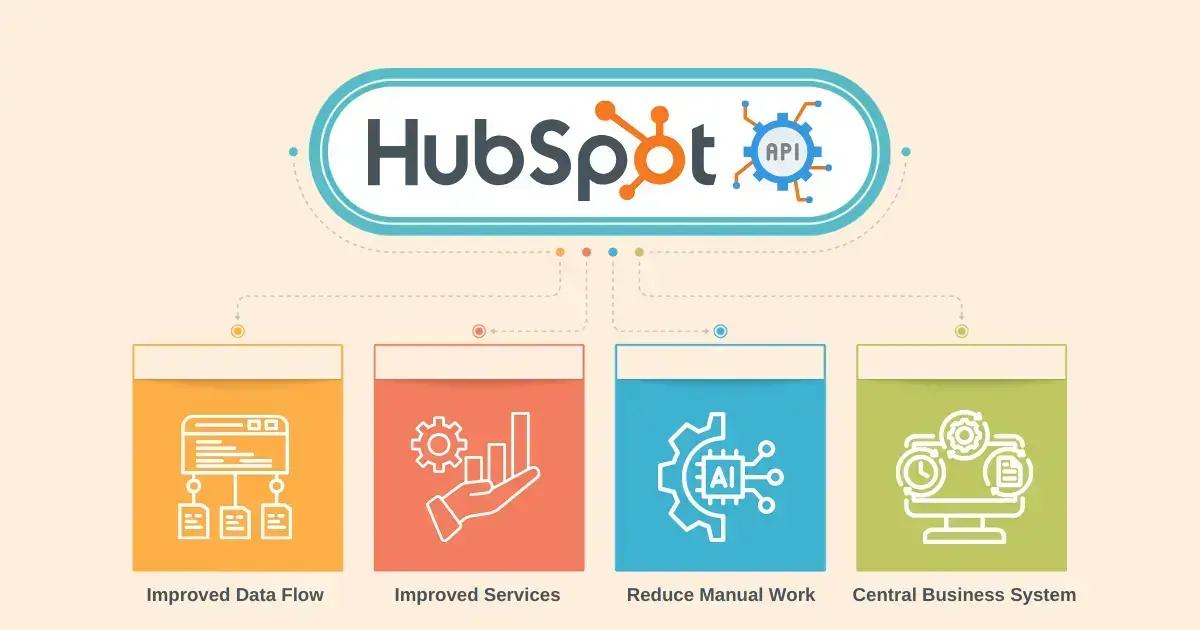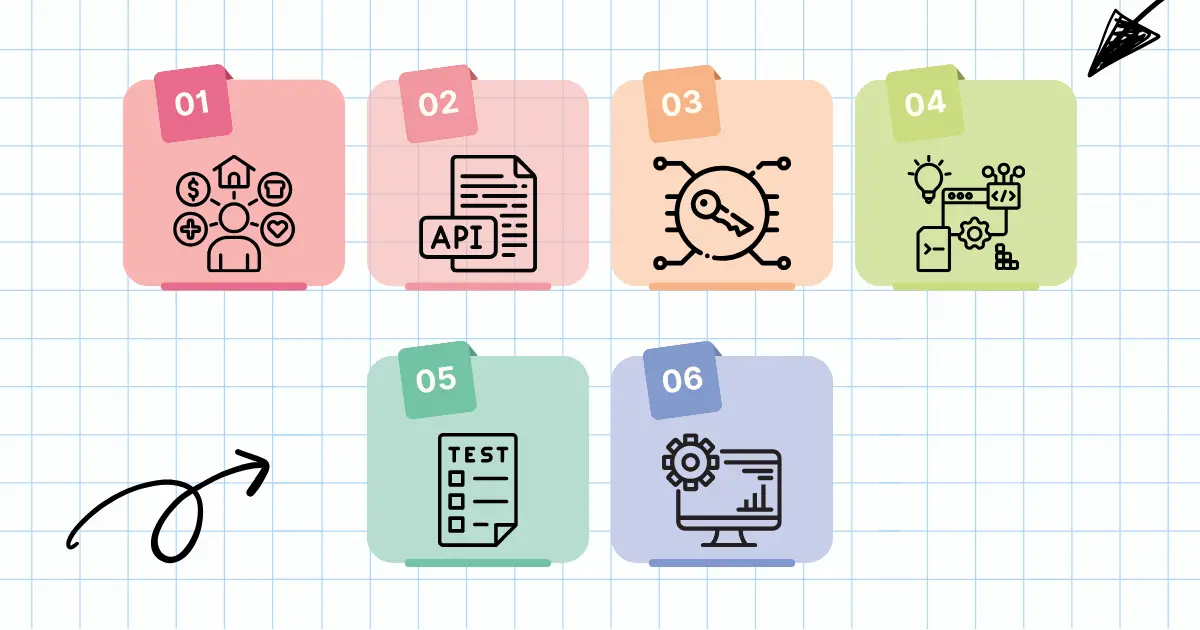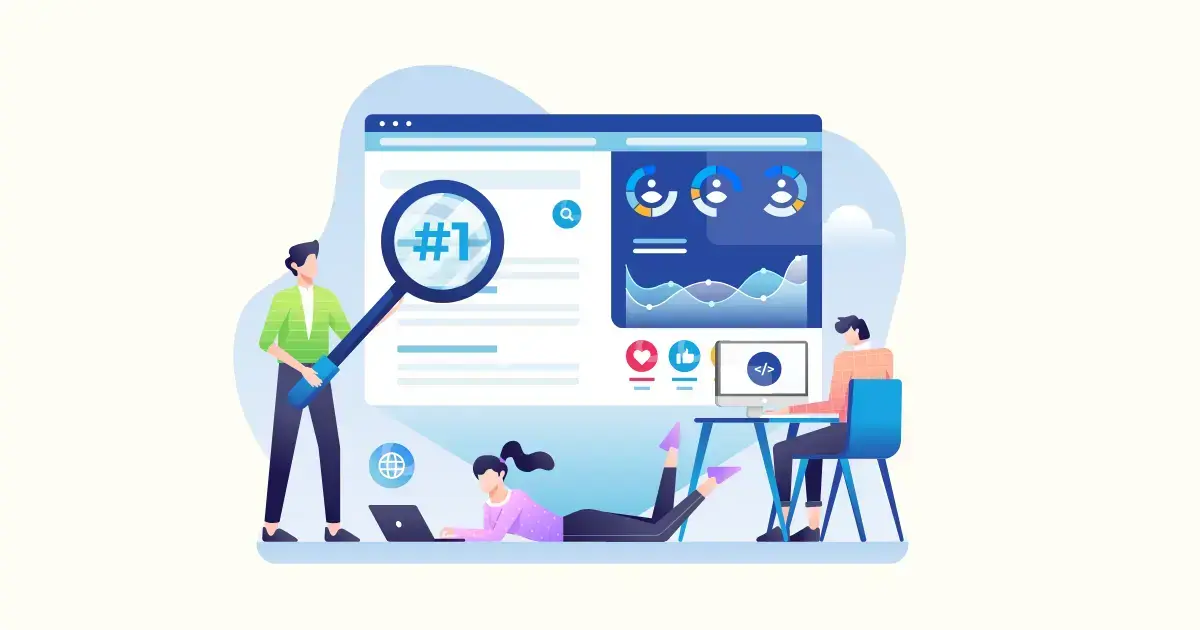How to Use HubSpot API Integration Services for Smooth Business Operations

Managing business operations can be challenging, especially when you’re juggling multiple tools and systems. But what if they could all "talk" to each other? This is where API integration comes in, particularly with HubSpot, a tool designed to make this process smoother. In this blog, we’ll show you how HubSpot API integration can transform your daily operations, save time, and reduce headaches.
What is HubSpot API?

API stands for “Application Programming Interface.” It’s like a digital bridge that connects HubSpot with other tools your business uses, allowing them to exchange data automatically. Instead of switching between systems and manually updating information, everything is synced up in real time. This saves you from the hassle of doing things manually and ensures accuracy across platforms.
Why Integrating HubSpot API is Crucial for Business Operations

Improved Data Flow
Customers Will Experience Improved Services
Your customer service team should have access to all the most up-to-date information so they can provide your customers with exceptional services. By understanding their history, preferences, and any issues they've been dealing with they can offer more tailored support for each of them.
HubSpot's API Can Reduce Manual Work
Central Business System
Common Uses of HubSpot API Integration for Business Operations

CRM Integration
Sales and Marketing Alignment
Aligning sales and marketing is crucial for success. With HubSpot API, you can sync lead data from marketing campaigns into the sales pipeline, helping both teams work more effectively together.
E-commerce Integration
Third-Party Tool Integration
Custom Apps
Step-by-Step Guide to Setting Up HubSpot API Integration

Define Your Integration Needs
Access HubSpot’s API Documentation
HubSpot provides comprehensive documentation on how to use its API. This guide is essential for understanding how to connect tools and make the most of your integrations.
Generate API Keys
Integrate Tools with HubSpot
Test the Integration
Monitor and Maintain the Integration
How HubSpot API Integration Improves Specific Business Operations

Sales Process Automation
Marketing Campaign Management
Marketing can also benefit from automation. You can automatically segment leads, trigger personalised email campaigns, and track performance—all integrated with HubSpot’s API.
Customer Support Optimization
Inventory Management for E-commerce
Data Analysis and Reporting
Challenges in HubSpot API Integration and How to Prevent Them

Data Sync Issues
Security Concerns
When dealing with customer data, security is a top priority. HubSpot uses encryption and OAuth for secure data transfer, but ensures that your systems are compliant with data protection regulations.
Scalability Problems
Ongoing Maintenance
Data Analysis and Reporting
Tips for Maximizing the Benefits of HubSpot API Integration

Customize Your Integration
Automate Workflows
Automating workflows can help save time and reduce errors. Use HubSpot’s API to set up workflows that trigger automatically based on certain actions or data points.
Use HubSpot’s Developer Support
Regularly Review Data Flows
Data Analysis and Reporting
When to Use HubSpot API Integration Services

Small Business vs. Large Business
Custom Business Needs
If your business has specific requirements that off-the-shelf software doesn’t meet, custom API integration can fill that gap.
Outsourcing vs. DIY
Regularly Review Data Flows
Data Analysis and Reporting
HubSpot API integration is essential for streamlining business operations, improving data flow, reducing manual work, and enhancing customer experiences. By connecting your systems, you create a more efficient, centralised way to run your business.
Ready to take the next step in improving your business operations? Start exploring HubSpot API integration today and see how it can transform your processes.
Senior RevOps Strategist at Hubxpert
Fazle Rabbi
Table of Contents:
Subscribe to our newsletter

HubSpot: Elevating Bangladeshi Consultancies Beyond Excel
Our 2024 Beginner's Guide to Revenue Attribution Models explains key models & helps you choose the right one to optimize campaigns & boost ROI.

Why Bangladeshi Consultancies Lose 30% of Leads—and How to Fix It
Our 2024 Beginner's Guide to Revenue Attribution Models explains key models & helps you choose the right one to optimize campaigns & boost ROI.

Bangladeshi Study-Abroad Marketing: Converting Social Media into Leads
Our 2024 Beginner's Guide to Revenue Attribution Models explains key models & helps you choose the right one to optimize campaigns & boost ROI.

Best CRM for Education Businesses in Bangladesh
Our 2024 Beginner's Guide to Revenue Attribution Models explains key models & helps you choose the right one to optimize campaigns & boost ROI.

Modern Sales Systems That Actually Convert for Bangladeshi Consultancies
Our 2024 Beginner's Guide to Revenue Attribution Models explains key models & helps you choose the right one to optimize campaigns & boost ROI.

What I Learned Helping Healthcare Businesses Fix Their Sales & Marketing Process
Discover how connected CRM systems like HubSpot can transform healthcare sales and marketing processes, improving patient engagement, reducing no-shows, and streamlining workflows.
-

HubSpot: Elevating Bangladeshi Consultancies Beyond Excel
Discover how businesses are using HubSpot to streamline marketing efforts, boost lead generation, and drive sustainable growth through data-driven strategies.
Marketing -

Why Bangladeshi Consultancies Lose 30% of Leads—and How to Fix It
Discover how businesses are using HubSpot to streamline marketing efforts, boost lead generation, and drive sustainable growth through data-driven strategies.
Marketing -

Bangladeshi Study-Abroad Marketing: Converting Social Media into Leads
Discover how businesses are using HubSpot to streamline marketing efforts, boost lead generation, and drive sustainable growth through data-driven strategies.
Marketing -

Best CRM for Education Businesses in Bangladesh
Discover how businesses are using HubSpot to streamline marketing efforts, boost lead generation, and drive sustainable growth through data-driven strategies.
Marketing -

Modern Sales Systems That Actually Convert for Bangladeshi Consultancies
Discover how businesses are using HubSpot to streamline marketing efforts, boost lead generation, and drive sustainable growth through data-driven strategies.
Marketing -

What I Learned Helping Healthcare Businesses Fix Their Sales & Marketing Process
Discover how businesses are using HubSpot to streamline marketing efforts, boost lead generation, and drive sustainable growth through data-driven strategies.
General



